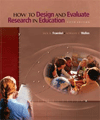Jack R. Fraenkel,
San Francisco State University
Norman E. Wallen,
San Francisco State University
| Census | An attempt to acquire data from each and every member of a population.
|
 |
 |
 |
| Closed-ended question | A question and a list of alternative responses form which the respondent selects; also referred to as a closed-form item.
|
 |
 |
 |
| Cohort study | A design (in survey research) in which a particular population is studied over time by taking different random samples at various points in time. The population remains conceptually the same, but individuals change (for example, graduates of San Francisco State University surveyed 10, 20 and 30 years after graduation).
|
 |
 |
 |
| Contingency question | A question whose answer depends on the answer to a prior question.
|
 |
 |
 |
| Cross-sectional survey | A survey in which data are collected at one point in time from a predetermined population or populations.
|
 |
 |
 |
| Longitudinal survey | A study in which information is collected at different points in time in order to study changes over time (usually of considerable length, such a several months or years).
|
 |
 |
 |
| Open-ended question | A question giving the responder complete freedom of response.
|
 |
 |
 |
| Panel study | A longitudinal design (in survey research) in which the same random sample is measured at different points in time.
|
 |
 |
 |
| Questionnaire | A list of questions that the participant answers in writing or by marking answers on an answer sheet.
|
 |
 |
 |
| Survey | A method of collecting information by asking a sample of participants questions in order to find out information about a population.
|
 |
 |
 |
| Trend study | A longitudinal design (in survey research) in which the same population (conceptually but not literally) is studied over time by taking different random samples.
|
 |
 |
 |
| Unit of analysis | The unit that is used in data analysis (individuals, objects, groups, classrooms, etc.).
|



 2003 McGraw-Hill Higher Education
2003 McGraw-Hill Higher Education